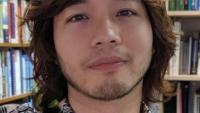Christian T. Gloria

Associate Professor of Sociomedical Sciences
What are some of the major projects that you are currently working on or some of the ideas you have for future research?
I am currently working with the Philippine Council for Health Research & Development and Angeles University Foundation (located in Pampanga, Philippines) to assess and study the mental health of communities from the Pampanga province of the Republic of the Philippines, where I was born and raised. Findings will be used to develop mental health policies and programs for communities, government agencies, private institutions, and non-governmental organizations. This groundbreaking research is the first of its kind and will establish baseline mental health data from this province, which will be one of many research and service efforts to come as a response to the country's first Mental Health Law (enacted in 2018). This law opens doors to integrating and funding mental health programs, services, and research in healthcare systems, government agencies, workplace settings, community centers, and education systems. Soon, I plan to compliment my research in the Philippines with studies of Filipino communities here in New York and across the United States.
How does your research fir into the larger landscape of public health research, and more specifically into sociomedical sciences?
Especially due to the COVID-19 crisis and the economic crisis that soon followed, mental health issues– such as chronic stress, feelings of isolation, anxiety, burnout, and depression– have been recognized as the third wave of crises affecting all of us around the world and none of us are prepared or immune to these incredibly challenging circumstances. Through the course of this pandemic, we see inequities in healthcare and disparities in health outcomes (physical and psychological), as well as inequities are disparities in access to alternative/remote education and employment, which are largely influenced by sociomedical factors.
Of course, mental health is as important today as it should be before and after this pandemic in terms of public health research, programs, and services. Mental health is an essential element of holistic health. Our mind and our body depend on one another, poor mental health contributes to poor physical health outcomes, and vice versa. Mental health also significantly affects our abilities to succeed and thrive in school, at work, and in every moment of our social lives. In order to achieve optimal public health, research in mental health is a critical piece of the public health research equation.
What do you hope to accomplish in the next year?
Being so new to New York City and coming all the way from the opposite corner of the United States– Honolulu, Hawaii– I hope to be able to soon bridge connections with the wonderfully diverse communities, organizations, agencies, and other stakeholders throughout the university, city, state, and beyond. I love to be of service and be an advocate for public health across the many layers of society, and I am very excited to make new friends, partners, and collaborators. Considering my passion for and work with Filipino and immigrant populations, I cannot wait to meet with these communities and see how my students and I could assist and contribute to their health and wellbeing. Within the next year, I hope to be able to resume my international research and service with the Republic of the Philippines that have been postponed due to the many restrictions related to the pandemic. With and through this pandemic, it is even more crucial for public health research and services to continue. It will be an interesting road ahead full of challenges to find creative pathways around these new obstacles in order to keep moving forward. However, I accept that challenge!
What is your favorite thing about teaching or mentoring?
My favorite thing about teaching or mentoring is simply the sharing of knowledge, experiences, perspectives, and wisdom from on to another– from teacher to student, student to teacher, student to student, and of course with our communities. We all have something to learn from every second of our interactions with others, which literally have been passed down throughout the countless generations of humanity. That is profoundly amazing to me, and I love that I can have a job and get paid to meet, teach, learn, solve problems, and save lives with people from all walks of life. Of course, as a teacher/mentor, another favorite and rewarding part of my work is seeing my students become the next generations of successful and inspiring public health advocates and leaders.
Do you have any hobbies? What might your colleagues not know about you?
As a very new member of the university and the school, my colleagues do not yet know anything about me. Let's keep it that way. I'm kidding. I come from a family with a long line of artists, painters, and musicians. I unfortunately did not have the patience to paint and I still vividly remember deciding in 6th grade that I will stop drawing/painting, hah! However, soon after that was when I realized how much I loved music when I joined choir and band (where I played trumpet and the baritone horn) which continued for many years through college. Especially now that I am in New York City, which is the global hotspot for music and the arts, I am excited to again be able to reconnect with these roots and immerse myself with the city's musicals, concerts, and activities. My friends also know that I spend an incredible amount of time playing video games (specifically PlayStation games) and watching anime. Ask me about these things sometime, and I'll go on for days...